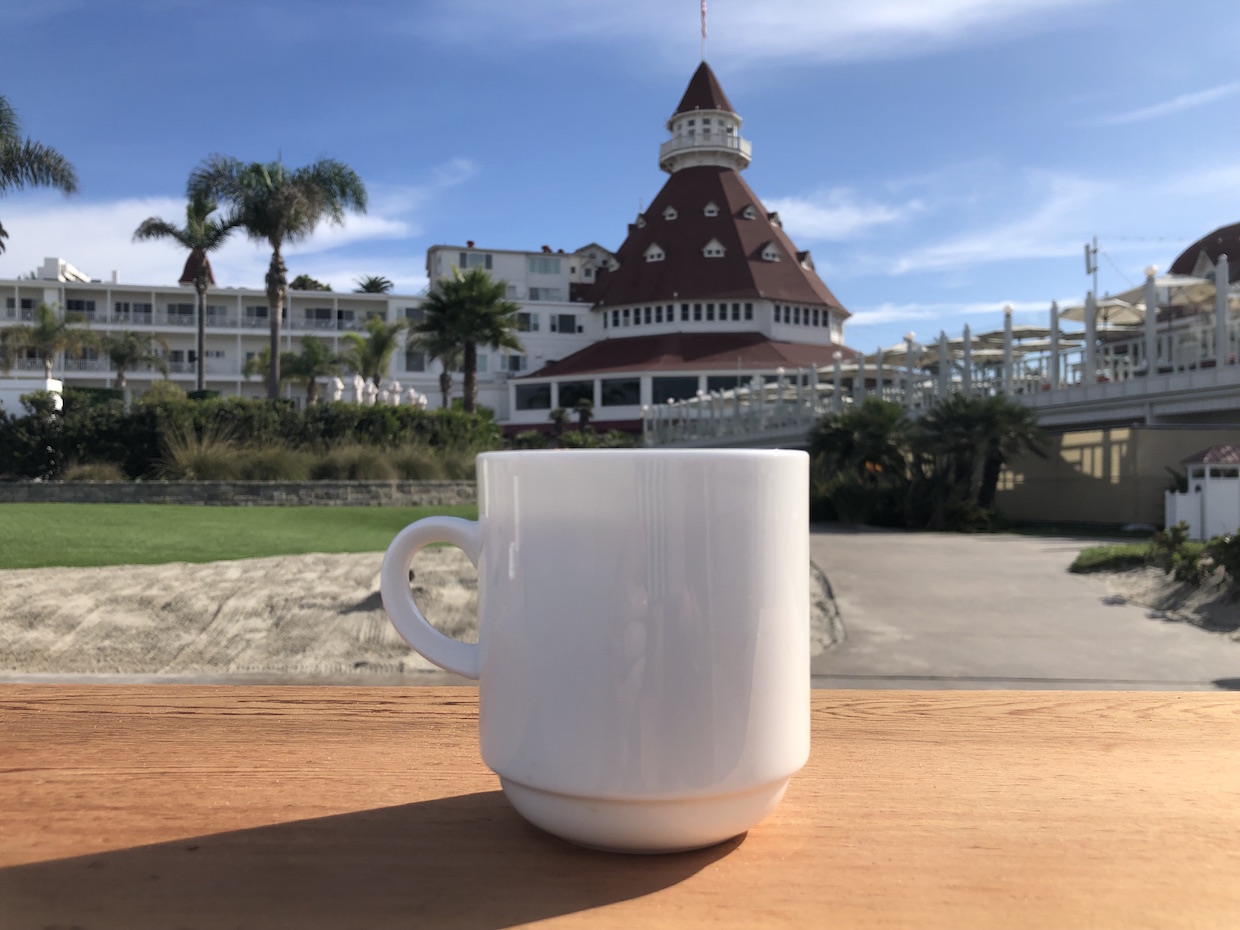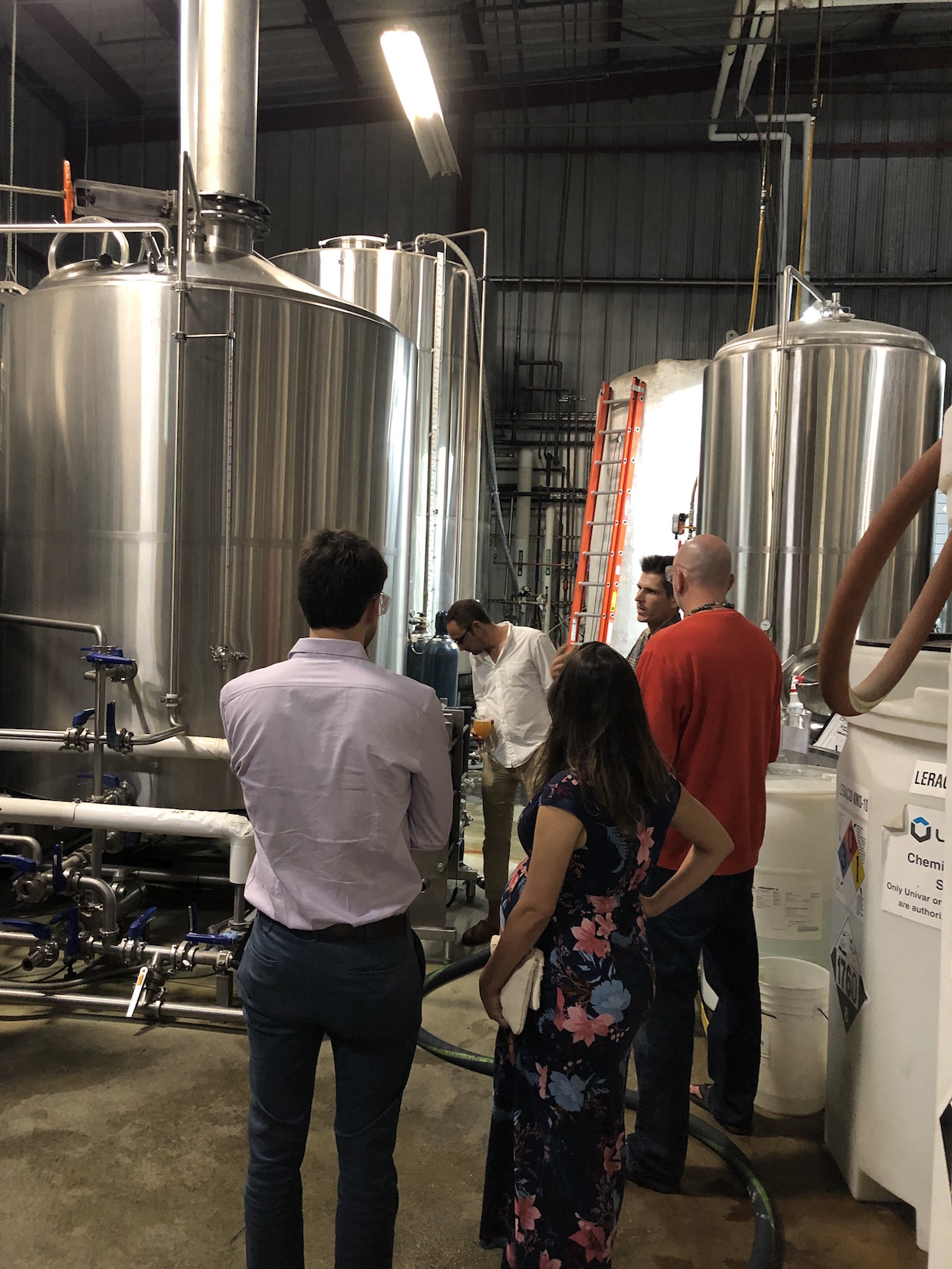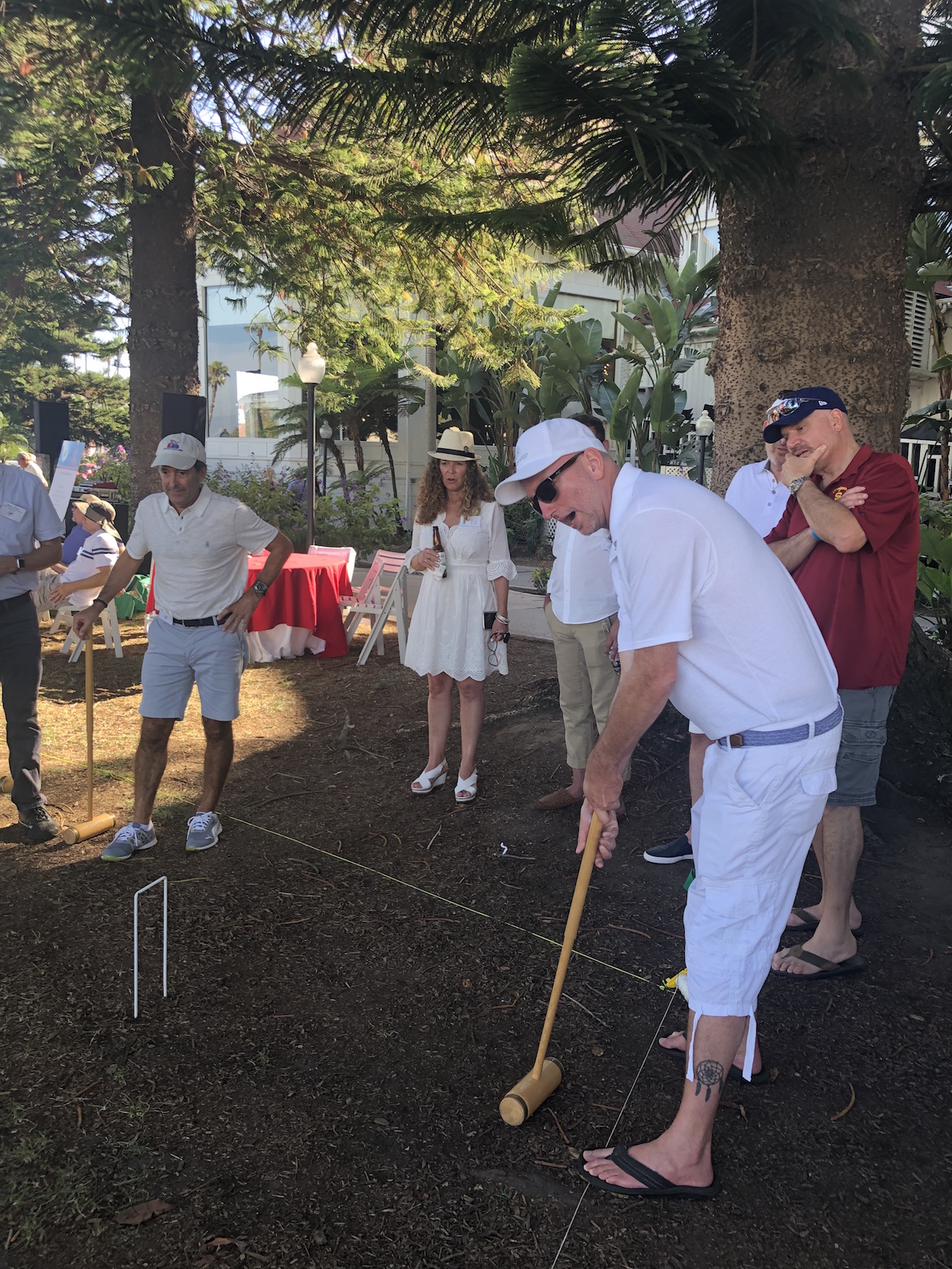
The 88th Annual PCCA Conference in San Diego took place at the Hotel Del Coronado. All photos by Connie Blumhardt/Roast Magazine.
The 88th Annual Pacific Coast Coffee Association (PCCA) Convention took place Sept. 12-14 at the beautiful Hotel Del Coronado in San Diego, including a lecture series, a private tour of the Modern Times Beer brewery and several social events.
David Piza, director of national accounts for S&D Coffee opened the lecture series speaking about cold brew marketing trends and commercial scale production challenges. Piza reminded the industry to educate consumers about the difference between cold brew and traditional iced coffee, saying, “It’s a common misunderstanding for consumers.”
Piza noted some of the challenges and variables related to commercial cold brew production, including variations in flavor profiles, concentration consistency, shelf life issues, cold shipping and storage, and processing conditions. Despite such challenges, a 3,000-person survey conducted by S&D projects that the cold brew segment will see a growth of 7.3% in volume between 2018-2023.
Mike Ebert, senior consultant from Firedancer Coffee Consultants gave show-goers an overview of the Food Safety Modernization Act (FSMA) and its impact on the coffee industry. FSMA impacts the areas of preventative controls for human food (GMP’s, HARPC/HACCP, supplier approval, documentation, traceability, qualified individuals), sanitary transport, foreign supplier verification (imported food safety), food defense, sanitary transport, and intentional adulteration.
Intentional Adulteration and Food Defense is the newest FSMA initiative. It requires food companies under $1 million dollars in revenue to have a food defense plan in place in the event of a contamination issue. Audits for the IAFD initiative began earlier this year and will continue into 2020.
“FSMA is no longer coming; it is here,” Ebert said. “Take the time to educate yourself before your inspector makes you learn it the hard way or your customers demand compliance.”
Modern Times Director of Coffee Bartleby Bloss, Green Coffee Buyer and Education Coordinator Tessie Warnecke and Special Projects Coordinator Justin Holmes led a conversation on the parallels and diversions between beer making and coffee making. In 2013, Modern Times started brewing beer and moved into roasting coffee solely for their cold beer program. Modern Times wanted full control over coffee as a beer ingredient. To keep their customers excited, Modern Times is constantly experimenting with their coffee and incorporating techniques from the beer world. Examples include barrel-aging green coffee, adding hops to roasted coffee, steeping green coffee with spirits, aging green coffee in spent beer barrels, re-fermentation of green coffee beans and direct infusions.
“Tessie believes that as a brewery that roasts coffee we must give it the attention and care that a standalone coffee company would need to succeed,” Bloss said. “This includes developing a strong education and training program, a relationship-based sourcing model, and a commitment to growing the coffee industry as a whole and our local community in increasingly innovative ways.”
The PCCA prides itself on being an organization that brings industry people together and cultivates relationships. Other social highlights included a croquet tournament and a golf tournament, giving guests ample opportunity to better get to know one another and build deeper connections.
“The PCCA is a unique organization in the coffee scape, in that it’s focus has always been first and foremost about building relationships,” PCCA President Matt Daks, of Volcafe Specialty Coffee, said. “The annual convention is different as well, as its intimacy allows for the development of relationships organically.”
Connie Blumhardt
Connie Blumhardt is the founder and publisher of Roast Magazine. She is based in Portland, Oregon.








Comment